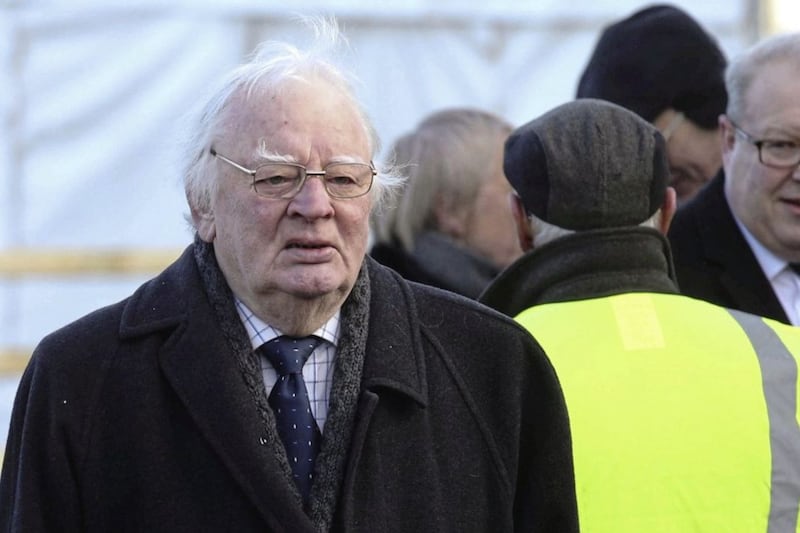IT is perhaps difficult today, at a remove of more than five decades, to fully appreciate the impact of Austin Currie's decision in June 1968 to break in to a house in Caledon, Co Tyrone and make a stand against discrimination.
The new three-bedroom property had been allocated to a 19-year-old unmarried Protestant woman ahead of more than 250 people on a waiting list, in a blatant act of injustice by the local unionist council.
Mr Currie, a young Nationalist MP, knew well the appalling conditions that many large Catholic families were forced to endure under a gerrymandered electoral system where only householders and spouses were entitled to a vote.
He asked for volunteers to occupy the house and was joined by Patsy Gildernew, whose relatives had been forcibly evicted from a neighbouring property, and Joe Campbell, a farmer from the Brantry area.
The trio would be evicted a few hours later, but not before images of the 'sit-in' would be flashed around the world and shine an unforgiving spotlight on decades of unionist misrule.
This simple protest became a catalyst for a civil rights campaign and set in motion a chain of events that ultimately led to the collapse of the old Stormont regime and safeguards to ensure fairness in housing, employment and other areas that are taken for granted today.
Mr Currie would go on to become a founding member of the SDLP, a Fine Gael TD, and hold the unique distinction of serving as a government minister on both sides of the border.
In the north, it was fittingly as minister in charge of housing in a power-sharing executive.
Tributes have rightly recognised his enormous contribution to Irish politics following his death this week aged 82.
SDLP leader Colum Eastwood described him as a "political giant", while former leader Mark Durkan spoke of his "purposed rage & principled roar".
His family, who shared the price of his courage through numerous attacks on their home by both loyalists and republicans, said he was their "guiding star who put the principles of peace, social justice and equality first".
Generous words also came from DUP leader Sir Jeffrey Donaldson in a tribute that would surely have pleased Mr Currie.
As the last survivor of an extraordinary group of nationalist leaders that came together to form the SDLP 50 years ago, his life will be remembered as an enduring example of the power of peaceful protest and persuasion to overcome injustice and effect lasting change.







